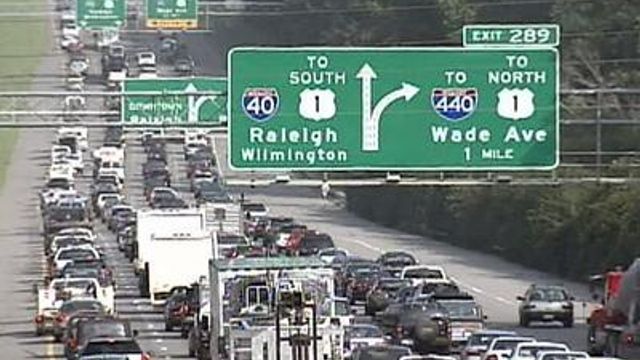Traffic
Mass transit could help ease air pollution
Mass transit could be an answer to help improve the Triangle's air quality.
Posted — UpdatedRALEIGH, N.C. — As the Triangle grows, traffic grows, and so grows air pollution.
Currently, the area does not comply with the Environmental Protection Agency's standards for air quality.
"Our air pollution problems don't come from factories, they primarily come from cars," said John Hodges-Copple, the planning director for the Triangle J Council of Governments, the regional planning group for Wake, Durham, Orange and surrounding counties. "So, whatever we do, transportation-wise, that will have the long-term effect."
Studies indicate that during the heaviest commute times in the Triangle, nine out of 10 vehicles have one person on board.
Trains and buses could help take cars and pollution off the road, but the Triangle Transit Authority's commuter rail plan was put on hold after the federal government declined to help fund it.
And, buses carry only 5 percent of Triangle commuters.
"I'm not going to pretend that any particular rail system or bus system will be the be-all and the end-all for air quality in the Triangle, but every little bit's going to help," Hodges-Copple said. "And I think that most people realize transit is going to play an important role in that broader equation"
If the Triangle is not in compliance by 2009, the federal government could withhold funds for future projects.
A regional Blue Ribbon panel appointed to create mass transit solutions meets to discuss the issue on Thursday.
• Credits
Copyright 2024 by Capitol Broadcasting Company. All rights reserved. This material may not be published, broadcast, rewritten or redistributed.





